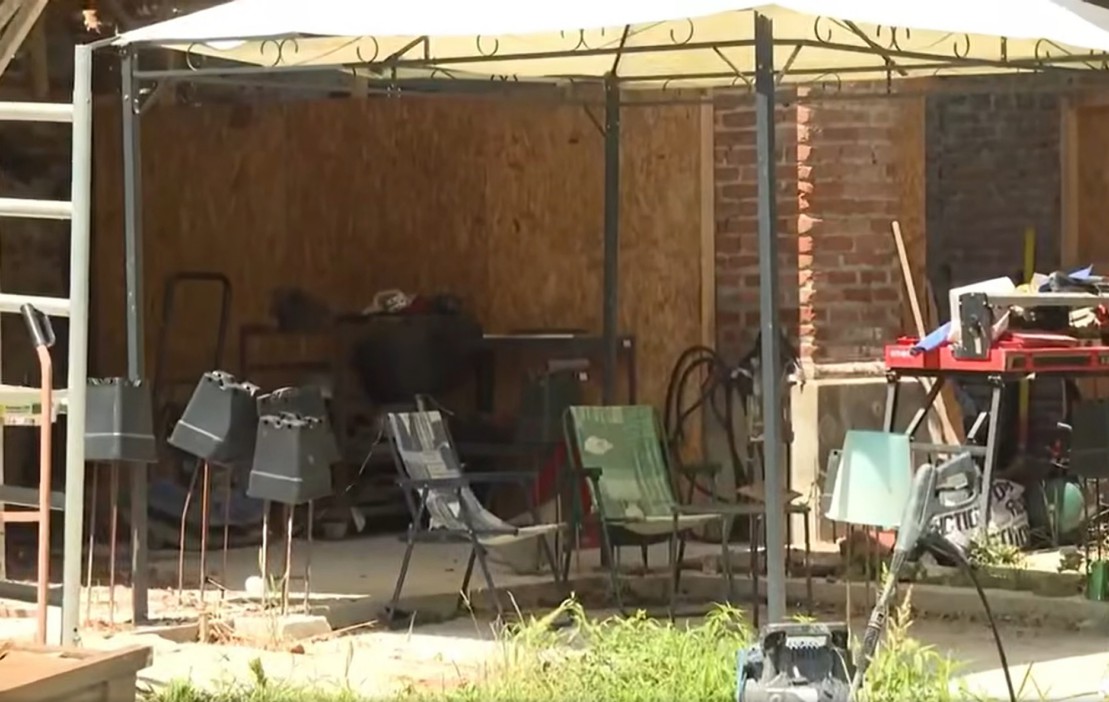Italian ‘Ghost Children’ Found in Woods: A Family’s Isolation Unveiled

The father of two children, aged six and nine, discovered living in the woods of Lauriano, northern Italy, has defended his decision to isolate them, claiming he transformed their home into a “bunker” for protection. The children, found by police in nappies and unable to speak, have been described by local media as “ghost children” due to their previously unknown existence.
The siblings’ living conditions shocked authorities, who found them communicating through a primitive language. Their parents, a 54-year-old sculptor and a 38-year-old, both Dutch nationals, had never registered the children with health officials or schools. The father insists that his actions were motivated by a desire to shield his family from external threats, including infections like Covid-19.
Inside the Isolated Life
The family’s farmhouse, described as a “bunker,” was reportedly self-sufficient. The father told Corriere Torino that the children had access to numerous toys, laptops, musical instruments, and even ski equipment. He claimed they enjoyed outdoor activities such as pony riding and visited restaurants and museums, despite their inability to read or write.
Images of the farm depict a derelict environment with broken furniture and trampolines left to decay. Rubbish was scattered across the garden, painting a picture of neglect. The secluded family came to light when police arrived to evacuate them due to a flooding alert.
Legal and Social Repercussions
Following the discovery, the Turin Juvenile Court ordered the immediate removal of the children from their parents, citing inadequate parental care. The children have been placed in state care while arrangements for foster care are underway. Concerns were also raised about the mother’s apparent lack of interest in her children, with reports suggesting she might be homeless.
Mara Baccolla, the local mayor, emphasized the delicacy of the situation, expressing hope that the children could now find balance and access a life “worthy of the name.” Residents of the nearby town expressed shock, having been unaware of the children’s existence despite changes in the farmhouse’s ownership.
Historical and Comparative Context
This case echoes other instances of extreme isolation and neglect. In a parallel incident in Spain, a German couple was arrested for child abuse after police discovered three boys living in squalid conditions in Oviedo. Dubbed the “house of horrors,” the children were found wearing face masks, nappies, and sleeping in caged beds, having been kept out of school since the pandemic began.
Such cases highlight the complexities of parental rights versus child welfare. Experts argue that while parents have the right to raise their children according to their beliefs, the state has a duty to intervene when a child’s basic needs are unmet or their safety is compromised.
“There are facts that suggest that the minors are deprived of adequate assistance from their parents or relatives who are required to provide it.” – Turin Juvenile Court ruling
Looking Ahead
The future of the children found in Lauriano remains uncertain as authorities work to ensure their well-being. The case raises questions about the extent of parental autonomy, especially in an era where fears of pandemics and societal collapse can drive families to extreme measures.
As the investigation continues, it remains unclear whether the parents will face further legal action. The situation underscores the importance of community vigilance and the role of social services in safeguarding vulnerable children.
The discovery of these “ghost children” serves as a stark reminder of the hidden lives that can exist behind closed doors, prompting a reevaluation of how societies protect their youngest members.






